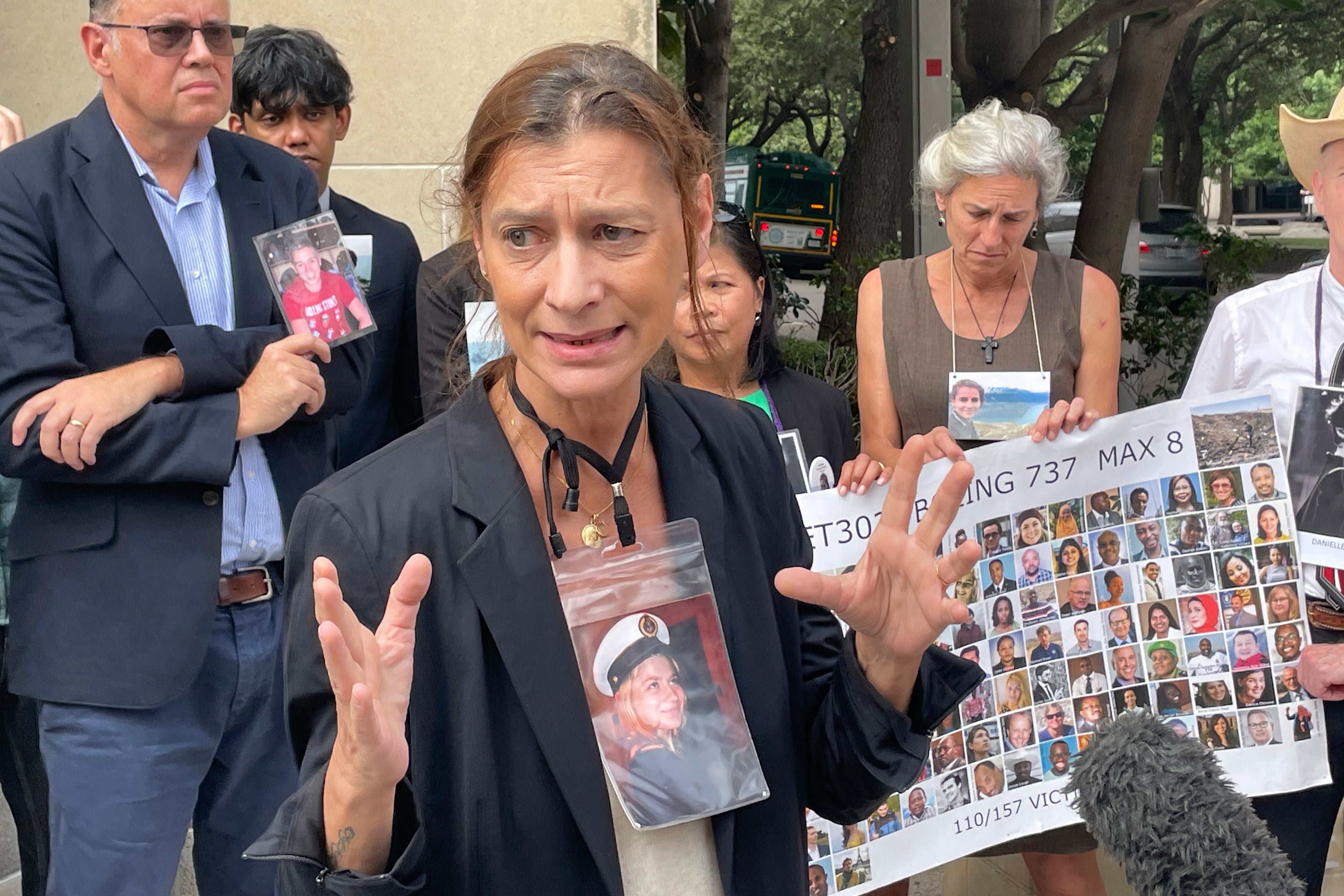Boeing's lawyers argue for settlement opposed by relatives of those killed in 737 Max crashes
Relatives of passengers who died in Boeing Max crashes have attended a Texas courtroom where their lawyers asked a judge to throw out a plea agreement they say is a sweetheart deal for Boeing

Relatives of passengers who died in two crashes of Boeing 737 Max planes came to a federal court in Texas on Friday to listen as their lawyers asked a judge to throw out a plea agreement that the aircraft manufacturer struck with prosecutors and put the company on trial.
Their lawyers argued that Boeing's punishment — mainly a fine amounting to about $244 million — would be too light for misleading regulators about a flight-control system that malfunctioned before the crashes. They accused Boeing and the Justice Department of airbrushing facts and ignoring that 346 people died in the crashes.
U.S. District Judge Reed O'Connor asked a Boeing lawyer why he should accept the prepackaged plea deal and a sentence negotiated by a defendant.
The Boeing lawyer, Ben Hatch, said Boeing "is a pillar of the national economy and the national defense” and needs to know the punishment before it agrees to plead guilty to conspiracy to commit fraud, a felony. Otherwise, he said, the company could be disbarred from federal contracting.
“All the employees of the company, the shareholders of the company and a global and national supply chain ... all of those are put into doubt if the sentencing" isn't known, possibly for months, Hatch said.
The answer stunned and angered relatives of the victims.
“Boeing is too important for the economy — they're too big to jail. That's what he's saying,” Michael Stumo, whose daughter Samya died in the second crash, said after the hearing. “It allows them to kill people with no consequences because they're too big and because their shareholders won't like it.”
The government joined Boeing in asking the judge to accept the deal that they struck in July.
Sean Tonolli, senior deputy chief of the Justice Department's fraud section, said the conspiracy count is the most serious crime prosecutors can bring — they can't prove that Boeing's deception of regulators caused the crashes. And, he said, going to trial is risky.
“We are confident in our case, but we don’t take for granted that we might not win," he said.
The judge, who had received written arguments from all sides before the hearing in Fort Worth, asked questions but gave no indication if he is leaning one way or the other. He has expressed sympathy for the passengers' families before, writing in a 2023 ruling about "Boeing’s egregious criminal conduct.”
“You have given me a lot to think about,” O'Connor said to all the lawyers as Friday's hearing ended. “I'll get a ruling out just as soon as I can.”
In July, Boeing agreed to plead guilty to a single felony count of conspiracy to commit fraud for allegedly deceiving Federal Aviation Administration regulators who were writing pilot-training requirements for the Max.
The FAA approved minimal, computer-based training for Boeing 737 pilots before they could fly the Max, the latest version of the 737. That helped Boeing by avoiding the need for training in flight simulators, which would have raised the cost for airlines to operate the Max.
Airlines began flying the Max in 2017. The first crash occurred in Indonesia in October 2018, followed in March 2019 by the second, in Ethiopia.
The plea agreement calls for Boeing to pay a fine of up to $487.2 million, but the fine would be cut in half by giving the company credit for $243.6 million it paid as part of a $2.5 billion settlement in 2021 to avoid prosecution. The Justice Department decided in May that Boeing violated terms of that settlement, leading to the new plea deal.
Boeing, which is based in Arlington, Virginia, would also invest $455 million in compliance and safety programs, and be placed on probation for three years.
The case is among a host of issues with which the manufacturer most contend.
Talks broke down this week with striking factory workers who assemble some of the company’s best-selling planes. The company withdrew its offer and S&P Global Ratings put it on its credit watch list, citing increased financial risk because of the labor unrest.
On Thursday, the company filed a complaint over what it calls unfair labor practices against the International Association of Machinists and Aerospace Workers. Boeing in its complaint with the National Labor Relations Board said that the union’s public narrative is misleading and has made it difficult to reach a resolution.
Bookmark popover
Removed from bookmarks